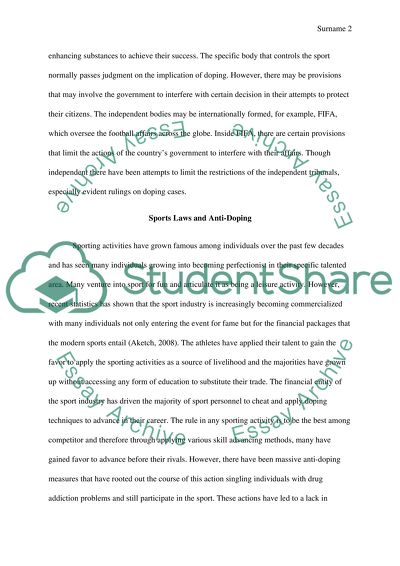Cite this document
(“Sports Laws and Anti-Doping Essay Example | Topics and Well Written Essays - 3000 words”, n.d.)
Retrieved from https://studentshare.org/law/1394697-sports-laws-and-anti-doping
Retrieved from https://studentshare.org/law/1394697-sports-laws-and-anti-doping
(Sports Laws and Anti-Doping Essay Example | Topics and Well Written Essays - 3000 Words)
https://studentshare.org/law/1394697-sports-laws-and-anti-doping.
https://studentshare.org/law/1394697-sports-laws-and-anti-doping.
“Sports Laws and Anti-Doping Essay Example | Topics and Well Written Essays - 3000 Words”, n.d. https://studentshare.org/law/1394697-sports-laws-and-anti-doping.


